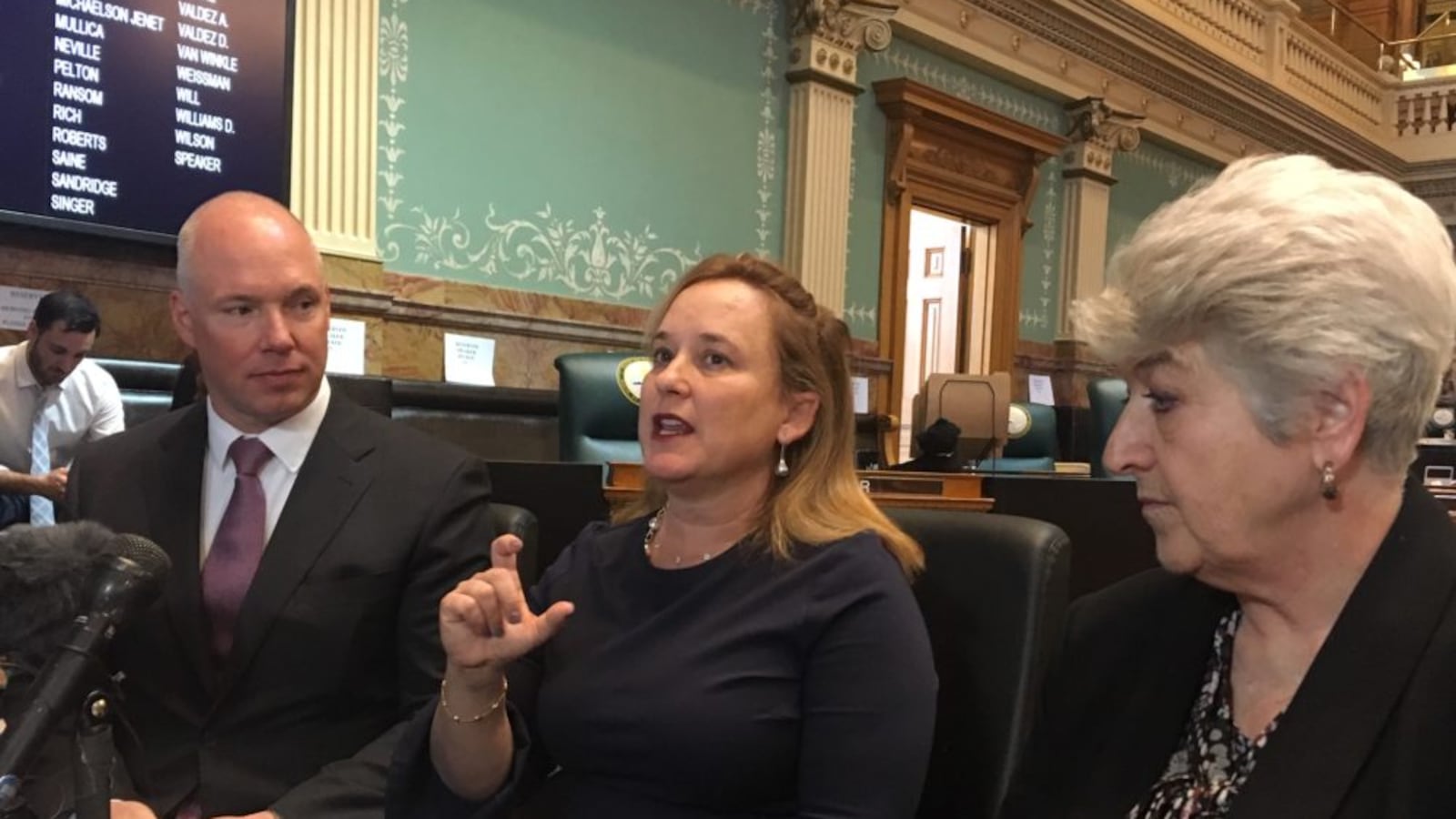Colorado would have more money to spend on schools, universities, and roads under a measure that some lawmakers want to present to voters this November.
The proposal does not involve a tax increase. Instead, voters would have to give up the possibility of getting refunds under the Taxpayer’s Bill of Rights, which caps the amount by which state government can grow each year.
Speaker of the House K.C. Becker, Democratic state Sen. Lois Court of Denver and Republican state Sen. Kevin Priola of Henderson on Wednesday introduced a referred measure that would appear on the ballot this fall. It would ask voters to let state government keep all revenue generated by existing taxes and fees.
A separate bill would divide any extra revenue equally among K-12 education, higher education, and transportation. It would need to be approved by the legislature but not by voters.
The amount of extra money generated by this measure could be modest, particularly if the economy heads into a downturn. Under current law, legislative economists predict the state will have to return about $65 million next year but nothing in the next two years.
The move comes a few months after voters rejected new taxes to increase spending on education and transportation, as well as a bond measure that would have borrowed money for road construction without raising taxes. Every year, Colorado withholds hundreds of millions of dollars that would otherwise go to school districts to pay for other needs, and the state Transportation Department has a long list of unfunded projects.
This proposal also comes after years of steep tuition increases at public universities, as higher education has lost out to other budget priorities and lawmakers have passed the cost on to students. This year, budget writers are trying to hold tuition flat.
“It’s a common-sense first step to ask voters if we can keep revenue they are already sending us and spend it on important state priorities,” Becker said. “We don’t think this is going to be a solution to long-term needs in transportation and higher ed or K-12, but we think it’s a really good first step.”
TABOR, a constitutional amendment approved in 1992, requires that voters approve all tax increases and doesn’t allow government spending to grow faster than population and inflation. When a strong economy generates more revenue, government officials have to find a way to return that money to taxpayers, rather than spending it on programs or banking it for a rainy day.
However, taxing entities can go to their voters and ask for permission to keep this extra revenue. Most school districts and cities in Colorado already have done so, a process known as “de-brucing” after Douglas Bruce, the former lawmaker and anti-tax crusader responsible for the Taxpayer’s Bill of Rights.
Now the state could do the same. This would be a change to state law but not to the constitution, Court emphasized. This means that a simple majority of lawmakers need to agree to place it on the ballot, rather than two-thirds, and a simple majority of voters, rather than 55 percent, need to approve it.
While Colorado voters have been persistently hostile to statewide tax increases, in 2005 they approved Referendum C, a measure that let the state keep extra revenue for five years. Unlike Referendum C, this measure would be permanent.
Republican leaders in the legislature were quick to disparage the idea.
“It’s clear what is happening here,” House Minority Leader Patrick Neville said in a statement. “Democrats can’t pay for all of their empty promises made in the last election, so now they want to permanently eliminate your tax refunds to pay for their expensive programs. It is egregious that the Democrats want to forever take away your consent on what is done with your tax dollars.”
Democrats have long chafed under the restrictions of TABOR, but its basic provisions, particularly the ability to vote on tax increases, are popular with many voters. Republicans often cast efforts to keep more revenue as violating the spirit, if not the letter, of TABOR.
Priola, a moderate Republican who often partners with Democrats on legislation, stressed that TABOR explicitly allows lawmakers to do what they are proposing here.
“This proposal follows TABOR to a T,” said Priola, who recalled voting for TABOR in the first election in which he was eligible. “It had the flexibility to go to the voters, to go to the grassroots, and ask them a question on debt or on taxes. That’s what our proposal does.”
Democrats have the votes to place this on the ballot without Republican support, but the backers said they would work hard to get more Republican support, particularly in the Senate where Democrats have a narrow two-seat majority.
It’s hard to say how much revenue this would generate for schools or what sort of refund taxpayers would miss out on.
This fiscal year, the state is returning $39.8 million to taxpayers through a local property tax exemption for seniors and disabled veterans. The legislative economic forecast for 2019-20 predicts a $64.8 million refund, but in the next two years, economists expect state revenue to fall below the cap. That would mean that even if voters approved this proposal, there would be no additional revenue those years.
Becker said that the recent Supreme Court decision in the Wayfair decision could allow Colorado to collect a lot more internet sales tax.
“It’s nice to be able to get the additional revenue, but if we can’t keep and use it, it doesn’t make a lot of sense,” she said. “At the same time, our constituents are telling us they want to see more investments.”

